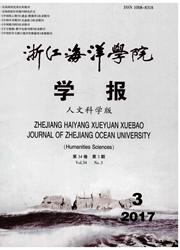

 中文摘要:
中文摘要:
作为日本主张钓鱼岛主权的重要起点和依据,“先占”在不同历史时期具有不同的内涵。明清时期发现等象征性行为已足以获得无主地主权,但在19世纪则包括无主地、占领宣告和国家有效管辖条件。然而,日本为实现“先占”目的,无视明清的有效管辖,否认了钓鱼岛有主的事实,捏造了“无主地”谎言。而且它当时所谓的宣告均不具备法律效力,所主张的对钓鱼岛的管辖,也是建立在否定中国的立场上开展的,本身即为非法。根据非法行为不产生权利的国际法基本原则,日方提出其对钓鱼岛的权利源自19世纪后半期的发现、有效管辖等难以成立。对中国而言,上述历史的基本经验和教训是,争取钓鱼岛主权需要积极提升和维持我国在钓鱼岛及其周边海域的管辖,增强管辖有效性。
 英文摘要:
英文摘要:
As an important starting point and basis of Japanese claims of sovereignty over the Diaoyu Island, "preemption" has different meanings in different historical periods. During the Ming and Qing dynasties, symbolic behavior served to obtain the sovereignty of terranullius , but in the 19th century, the main conditions included terranullius, occupational declaration and national effective jurisdiction. However, for the realization of "preemption" objective, Japan ignored the effective jurisdiction of the Ming and Qing Dynasties, denying the fact that the Diaoyu Islands has an owner, and fabricated the lies of "terranullius". And it did not have the legal effect of the so'called declaration at that time. The claim of the Diaoyu Islands jurisdiction, which was set up on the denim of China's position, was illegal. According to the basic principles of international laws, illegal behaviors do not result in the right. The Japanese claims for the right to have the Diaoyu Islands resulted from the discovery in the second half of the 19th century. As a result, the so-called jurisdiction over the Diaoyu Islands is hard to come into being. For China, the past experience and lessons learned from the above tell us Chinese people to strive for the sovereignty of the Diaoyu Islands. China must actively enhance and maintain the jurisdiction of the Diaoyu Islands and its surrounding waters so as to enhance the effectiveness of jurisdiction.
 同期刊论文项目
同期刊论文项目
 同项目期刊论文
同项目期刊论文
 期刊信息
期刊信息
